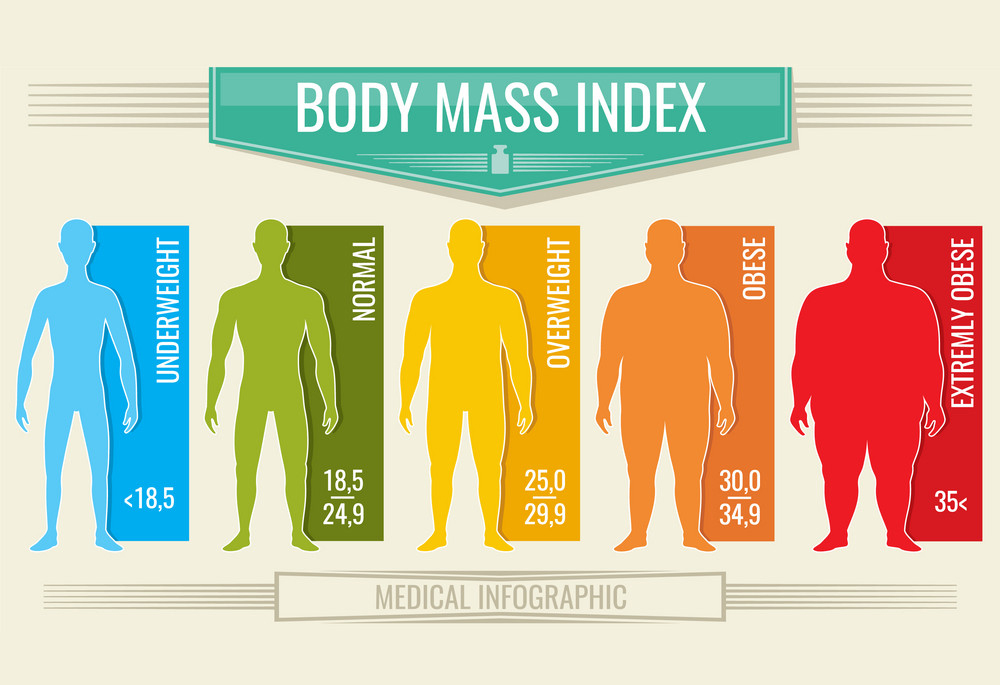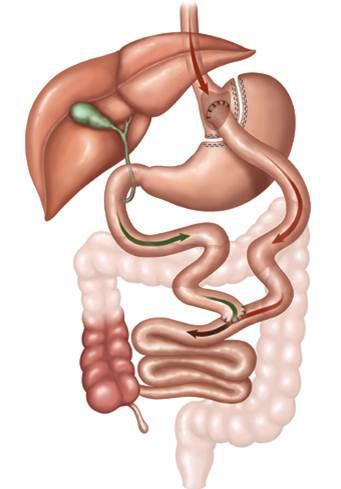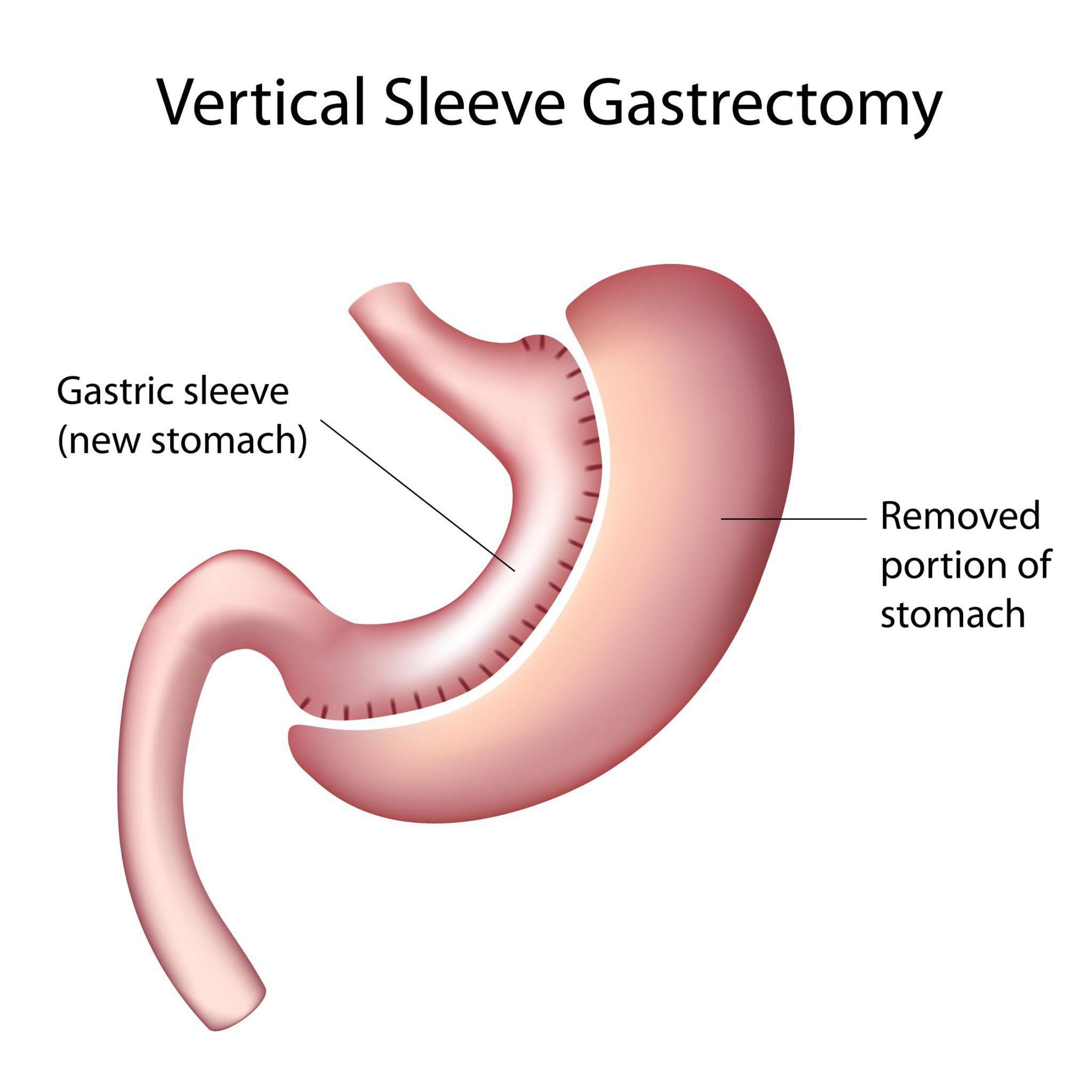Weight Loss Surgery
Am I a Candidate for Surgery?
Bariatric surgery is the only proven method to maintain long lasting weight loss. Weight loss surgery is geared for individuals who are severely overweight, but it is not for everyone.
There are several requirements one has to meet to be a candidate for surgery:
- BMI of 40 or higher – People with a body mass index (BMI) of 40 or higher are candidates for weight loss surgery regardless of their co-morbidities.
- BMI of 30 or higher with medical co-morbidities – Individuals who have medical conditions related to their obesity may qualify for surgery if their body mass index is only 30.

Request Appointment
Contents
Different types of Weight Loss Surgeries
Our weight loss surgeons practice here at AMI Weight Loss Center three different types of surgical Weight Loss procedures: Adjustable Gastric Banding (Lap-Band®), Laparoscopic Gastric Bypass and Laparoscopic Gastric Sleeve.
Adjustable Gastric Banding (Lap-Band®)
Adjustable Gastric Banding (Lap-Band®) surgery is one of the safest, most popular, and affordable medical weight loss procedures available. It was first developed in the 1980’s and has been used extensively in Europe, Australia and the United States as a primary tool in the fight against obesity.
The surgery is performed by placing a band around the uppermost part of the stomach, thereby limiting the amount of food one can eat at a time. The band is then adjusted in the office through simple techniques allowing the diameter of the band to increase or decrease thereby limiting the volume of food you can ingest at one time.
The actual surgery only takes 30 minutes to an hour to perform and most patients are discharged home the same day. Recovery times vary, but patients generally return to work and normal activities within 4 to 7 days. Because the surgery uses laparoscopic techniques, patients experience less post-operative pain, recover quicker, and are to return to normal activities sooner in comparison to other forms of bariatric surgery. The Lap Band® procedure is reversible and adjustment of the band is done with a simple needle puncture.
After Lap-Band surgery our patients are placed on a specific diet that enables them to lose weight in a safe manner without compromising the healing process. Weight loss can be noticed in a matter of weeks or even days.
Laparoscopic Roux-n-Y Gastric Bypass

Laparoscopic Gastric Bypass is the most commonly performed weight loss procedure. Its success in achieving rapid weight loss comes from being both a restrictive procedure (reducing the size of the stomach through stomach stapling) in combination with a malabsorption procedure (stapling and re-routing a portion of the intestines). This way the stomach is reduced in size, and parts of the small intestine, where a majority of the calories are absorbed, are bypass.
More importantly, by bypassing portions of the intestinal tract, vital changes in the body occur, often times eliminating many of the associated obesity co-morbidities (example: diabetes, high blood pressure, joint and back pain).
The actual surgery takes approximately 3 hours and most patients will stay in the hospital for 2-3 days. Recovery times vary, but patients generally return to work and normal activities within 2 weeks. Because the surgery uses laparoscopic techniques, patients experience less post-operative pain, recover quicker, and return to normal activities sooner in comparison to other forms of surgery. The gastric bypass surgery is an irreversible procedure and unlike the Lap-Band does not require in-office adjustments.
After gastric bypass surgery our patients are placed on a specific diet that enables them to lose weight in a safe manner without compromising the healing process. Weight loss can be noticed in a matter of weeks or even days. All bypass patients are required to take lifelong supplements/vitamins, but to help our patients, we provide specific guidelines thereby eliminating the guess work.
Rest assured that our team is committed to helping you achieve lifelong results. We are prepared to work with you before, during, and after your procedure to ensure that the weight comes off and stays off.
Laparoscopic Gastric Sleeve

Sleeve Gastrectomy is one the newest procedures added to help fight obesity. It differs from both the Lap-Band and the gastric bypass in that there are no foreign objects left in the abdominal cavity, nor are we re-routing the intestines. The sleeve gastrectomy is considered a restrictive procedure. It works in two ways; first using a stapling device, the stomach is divided creating a narrow section called the “sleeve”. This section “restricts” the volume food a patient can ingest at one time resulting in early satiety. Secondly, by removing the excess stomach (80% of the total volume of the stomach), populations of cells which contain the hunger stimulation hormone Ghrelin that are thought to contribute in the stimulation of hunger are removed. There is no intestinal bypass with a Sleeve Gastrectomy limiting nutritional deficiencies. Weight loss from the Sleeve is similar to that of Gastric Banding, but is less than weight loss with Gastric Bypass.
The Sleeve Gastrectomy has been growing in popularity all over the United States. It is covered by most insurance companies and has been approved by the American Society for Metabolic and Bariatric Surgery as a primary operation.
The actual surgery takes approximately 2 hours and most patients will stay in the hospital for 1-2 days. Recovery times vary, but patients generally return to work and normal activities within 1-2 weeks. Because the surgery uses laparoscopic techniques, patients experience less post-operative pain, recover quicker, and return to normal activities sooner in comparison to other forms of surgery. It is important to know that since the majority of the stomach has been removed, the sleeve gastrectomy is an irreversible procedure. It can be converted to other weight loss procedures such as a gastric bypass, however, and some surgeons use the Sleeve as a first step in a two-step process in very high risk patients. Unlike the Lap-Band it does not require in office adjustments.
After surgery our patients are placed on a specific diet which enables them to lose weight in a safe manner without compromising the healing process. Weight loss can be noticed in a matter of weeks or even days.
Rest assured that our team is committed to helping you achieving lifelong results. We are prepared to work with you before, during, and after your procedure to ensure that the weight comes off and stays off.
Revisional Weight Loss Surgery

Each weight loss procedure has different short and long-term results, as well as unique long-term complications. Patients who have had ill effects as a result of weight loss surgery may require other procedures to correct the original operation. These types of operations are called revisional weight loss surgery.
Our experts surgeons have performed more than 200 revisions from other weight loss procedures such as gastric bypass, adjustable gastric banding, and sleeve gastrectomy on patients from all over the United States.
Benefits of Revisional Weight Loss Surgery
There are many benefits to laparoscopic revisional weight loss surgery, including:
- Most procedures/revisions can be done laparoscopically, which means smaller incisions, less pain and quicker recovery
- Most patients only require a hospital stay of one to two days
- Recovery time is shorter overall
With many options in revisional surgery today, it is important to choose an experienced surgeon who can help you make the best choice for your needs. Dr. Bonheur is a board certified surgeon who is well versed in revisional weight loss surgery. Despite the recent weight gain, loss of restriction and added hunger, not all patients will need revisional surgery. During your consultation, your needs will be heard and options discussed directly with our weight loss experts. AMI Weight Loss Center‘s comprehensive approach to weight loss ensures that the positive results you receive from your experience with us will help you maintain long term success with proper exercise, diet and stress management techniques.
If you have gained weight since your original bariatric procedure, it may be time to consider laparoscopic revisional weight loss surgery. Talk to your doctor, or contact our team of experienced professionals to find out which procedure is right for you.
Do I need Revisional Weight Loss Surgery?
Revision weight loss surgery repairs or revises a prior bariatric surgery. Even if you maintain good habits and you made use of a qualified surgeon and reputable surgical center, there is always a possibility that you need a revision weight loss procedure.
Some common situations that may require a revisional weight loss operation may include the following:
- Complications from a previous open gastric bypass procedure
- Failure to lose adequate weight after a gastric banding
Request Appointment
LEARN MORE ABOUT OUR SERVICES
Acid Reflux
more info
Aesthetic Treatments
more info
more info
more info
Gastric Banding
more info
Gastric Bypass
more info
Gastric Sleeve
more info
General Surgery
more info
GERD
more info
more info
more info
Laparoscopic Surgery
more info
more info
more info
more info
more info
Sclerotherapy
more info
more info
Varicose Veins
more info
more info
OUR LOCATION